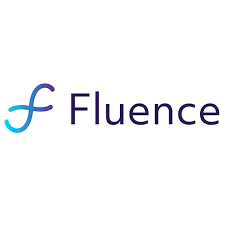Can you tell us about the mission of Fluence and how it was established?
Fluence was established in 2019 by myself (Dr. Elizabeth Nielson) and Dr. Ingmar Gorman, both of us psychologists working in clinical research studies with psychedelics. Fluence is dedicated to increasing awareness, availability, and safety of psychedelic therapies and related healthcare. Our mission is to serve psychedelic therapy practitioners through responsible, evidence-based education, community, and professional support.
To meet this goal, we work to expand the availability of and access to high quality professional education in the field of psychedelic integration and psychedelic-assisted therapy. Our foundational work is to (1) Increase knowledge and acceptance of psychedelic therapies and people who choose them among healthcare professionals; (2) Equip healthcare professionals to provide or assist in the provision of ethical, safe, legal, therapeutic access to psychedelic therapies for mental health and addiction treatment; (3) Reduce stigma and related barriers to access for psychedelic therapies, especially those that hinder access by more marginalized groups; (4) Increase access to quality professional assistance for people who use psychedelics by educating more professionals about this topic while recognizing greater barriers for more marginalized groups; and (5) Promote diversity in the field of psychedelic-informed medical and mental health professionals through our selection of trainers, affiliates, collaborators, materials, citations, and sources.
What does a typical training program at Fluence look like, particularly for professionals who are new to psychedelic-assisted therapies?
Fluence offers options ranging from individual webinars and brief on-demand courses to full certificate programs that take 9 months to complete. Our program is designed to be flexible and responsive to the needs of working professionals who have varying degrees of initial familiarity with the subject matter. We offer a certificate in psilocybin-assisted therapy that qualifies graduates to apply for licensure as a Psilocybin Facilitator in Oregon, as well as two complete Continuing Education (CE) certificates for clinicians wishing to specialize in Psychedelic Harm Reduction and Integration (PHRI) or Ketamine-Assisted Psychotherapy (KAP). This is in addition to our training programs for research therapists. Important points about our training program:
• Founded by and for clinicians, Fluence is a continuing education organisation first and foremost. Best-in-class education and training is our sole focus.
• Our small group cohorts and mentoring program ensure that students have ample opportunity to not only get certified, but get an education tailored to their specific needs.
• Fluence is one of the only organisations in the psychedelic therapy training space that is widely credentialed to issue Continuing Education credits for a variety of professionals.
• We use the latest education technology to enhance and complement our already rich learning experience—not to replace it.
• Some of the biggest research and drug development organisations in the psychedelic space already trust Fluence to train clinicians for their own clinical trials.
• Our community platform boasts thousands of like-minded practitioners of all kinds, from social workers to psychiatrists, nurses and physicians to psychologists.
How does Fluence ensure the safety and wellbeing of patients during psychedelic therapy sessions?
Fluence does not provide psychedelic therapy, but as a training organisation, we have a critical responsibility to train providers to safely conduct psychedelic therapy sessions. A large portion of the work we do is training therapists for psychedelic research studies, and in doing so, we cover the latest standards of care for psychedelic therapy in the clinical environment. We also cover the specific ethical considerations therapists should keep in mind when working with psychedelics, as these extend beyond what they have already adopted as part of their professions. When we train therapists for practice in the community, outside of the research setting, we are always basing our work on the highest standards of clinical care developed in the research environment. Our programs for therapists include materials on ethics, informed consent, psychotherapeutic touch, and providing trauma-informed care in the context of psychedelic therapies.
How did the partnership with Phaneros come about, what makes them a good partner, and what do you hope to achieve from the partnership?
The partnership with Phaneros developed out of a conversation between Fluence Co-Founder Elizabeth Nielson and Phaneros Founder Eduardo Schenberg, who met through their work for MAPS around 2018. Coincidentally, Elizabeth used to live in the same region of Brazil as Eduardo, and so had familiarity with the language and logistics of working there. In 2020, Elizabeth became an advisor to Phaneros, helping in the development of research study protocols and training program development. Fluence provided technical assistance to Phaneros’ research therapist training program starting in 2022, and this recent licensing agreement is a continuation of our work together. Together, we hope to achieve broader education about psychedelic therapies in Brazil such that Brazilian therapists can learn the present science and adapt the practices we teach in locally appropriate ways.


